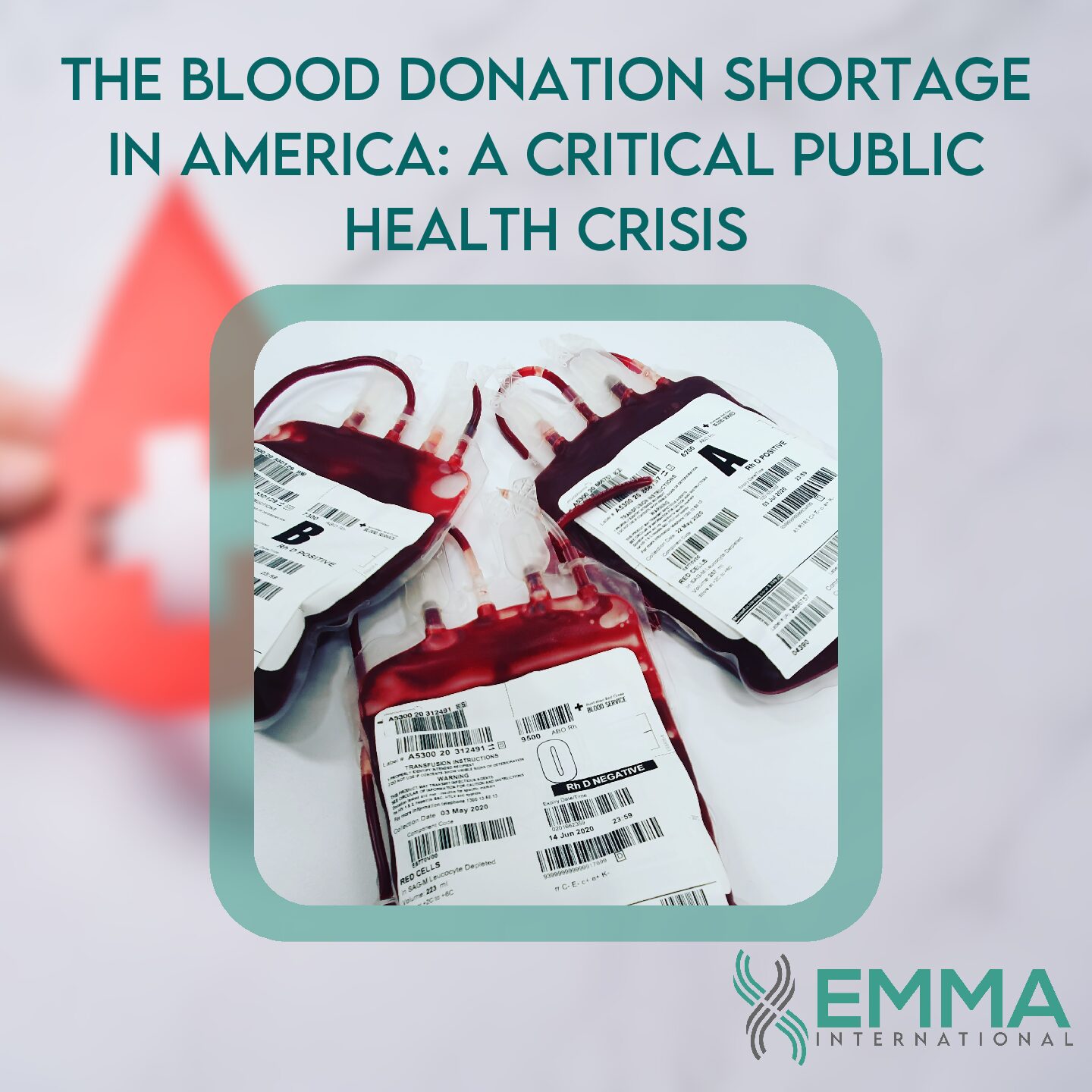Blood donation is an essential component of the healthcare system, saving millions of lives each year. However, the United States is facing a severe blood donation shortage, placing patients at risk and straining hospitals and emergency services. This crisis has been exacerbated by the COVID-19 pandemic, logistical challenges, and declining donor participation. Addressing this issue requires a collaborative effort between healthcare providers, policymakers, and the public to ensure a stable and sufficient blood supply.
The Growing Blood Supply Crisis
The American Red Cross, which supplies about 40% of the nation’s blood, has repeatedly issued emergency appeals due to critically low inventories (American Red Cross, 2022). Blood shortages disrupt medical procedures, including surgeries, cancer treatments, and trauma care. Unlike other medical resources, blood has a limited shelf life, making consistent donations essential to maintaining supply levels.
One of the primary causes of the shortage is a decline in donor turnout. The pandemic led to the cancellation of thousands of blood drives, reducing collection opportunities (Pagano et al., 2021). Additionally, many regular donors have not returned, either due to health concerns or lifestyle changes. This reduction in donations has created an ongoing supply-and-demand imbalance.
Impact on Healthcare and Patients
A shortage of blood has dire consequences for patient care. Individuals undergoing major surgeries, organ transplants, and cancer treatments often rely on regular transfusions. According to the Association for the Advancement of Blood & Biotherapies (AABB), even a one-to-two-day supply reduction can force hospitals to delay elective surgeries and prioritize emergency cases (AABB, 2023). Trauma victims, premature infants, and those with blood disorders like sickle cell disease are particularly vulnerable.
Addressing the Blood Shortage
To combat the shortage, healthcare organizations and blood banks are implementing new strategies to encourage donations. These include mobile donation units, workplace donation drives, and expanded eligibility criteria. For example, the FDA recently updated its blood donation guidelines, easing restrictions on certain groups to increase the donor pool (FDA, 2023).
Public awareness campaigns also play a vital role in motivating people to donate. Community engagement, incentives, and leveraging social media to highlight urgent needs can help attract new donors. Employers, educational institutions, and religious organizations can also support blood donation efforts by hosting drives and promoting participation.
The Role of Policy and Innovation
Beyond individual donations, systemic changes are needed to ensure long-term stability. Government initiatives that provide funding for donor recruitment programs, technological advancements in blood preservation, and streamlined donation processes can help sustain the blood supply. Research into synthetic or lab-grown blood also presents a promising future alternative, though widespread implementation is still years away (Goodnough & Leahy, 2020).
Conclusion
The U.S. blood donation shortage is a pressing public health crisis that requires immediate attention. Increasing donor participation, implementing policy changes, and investing in innovative solutions are all critical steps toward mitigating this challenge. By working together, we can ensure that hospitals have the resources needed to save lives and provide critical care to those in need.
References
AABB. (2023). Blood Supply and Patient Care: Addressing the Ongoing Crisis. Association for the Advancement of Blood & Biotherapies.
American Red Cross. (2022). Blood Shortage Emergency: How You Can Help. American Red Cross.
FDA. (2023). Updated Blood Donation Guidelines and Eligibility Criteria. U.S. Food and Drug Administration.
Goodnough, L. T., & Leahy, M. F. (2020). Blood Transfusion and Artificial Blood: Advances and Challenges. The Lancet Hematology, 7(4), 299-310.




